The number of babies and toddlers admitted to Manchester hospitals with breathing problems has increased by a third as illegal pollution levels continue to rise.
Figures obtained by grassroots environmental group Mums for Lungs found infants under three admitted with serious breathing problems increased by 33% from 654 in 2023 to 872 in 2024.
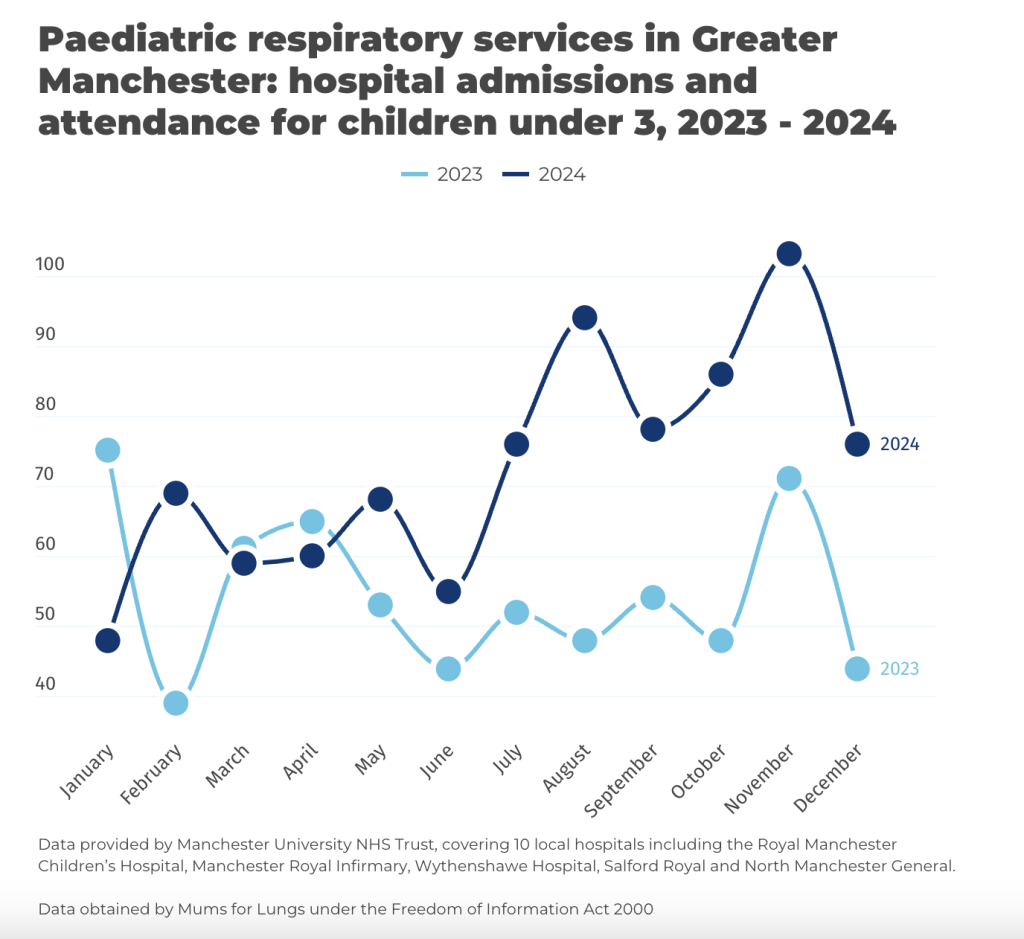
This comes as Greater Manchester scrapped its clean air zone plans for alternative ideas earlier this year, despite being the worst polluter in the UK for nitrogen dioxide (NO2), breaching UK legal limits by 31%.
Dr Sinead Millwood, an NHS GP in Levenshulme said: “All the evidence shows that there is a clear connection between high levels of air pollution and respiratory conditions.
“I wish our leaders would take the action needed to address this.”
Figures showed nearly 8,500 admissions and outpatient attendances to specialist paediatric respiratory services for children under 18 in the last two years, with 520 more children admitted last year with serious breathing difficulties, a 13% increase from 2023.
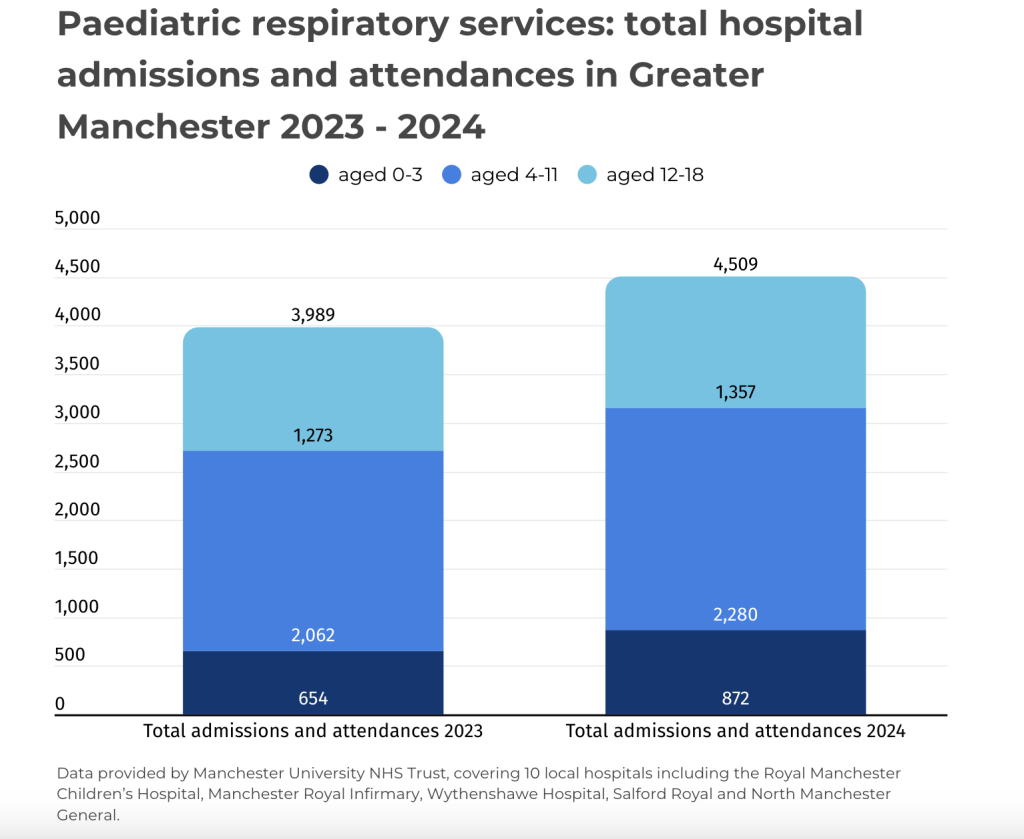
Children aged four to 11 made up the bulk of admissions with 4,342 across two years.
Dr Millwood said: “These figures demonstrate that there are hundreds of children who are attending hospitals with illnesses that could be prevented.
“Air pollution affects us from before birth, with children particularly at risk as they are growing and developing.
“It can lead to poorly developed lungs, asthma and respiratory infections as well as affecting brain development and [the] ability to learn.
Alba De Toro Nozal, a Manchester-based translator and interpreter, believed her son’s condition has worsened since birth because of pollution in South Manchester.
The mother of seven-year-old Eliot said: “My had viral induced wheezing, he couldn’t breathe at home even with inhalers so we had to constantly go to A&E to put him on a nebuliser.
“I know this was caused by pollution in the air in our local area.”
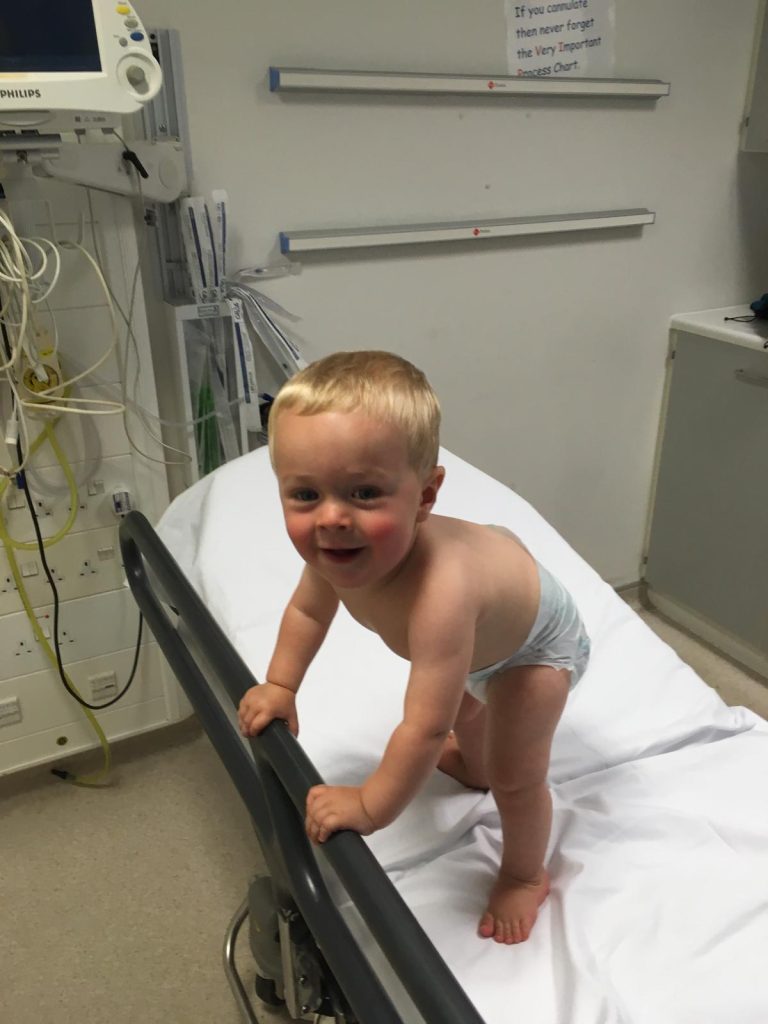
Road transport is the largest contributor to illegal levels of air pollution in Greater Manchester and it’s thought that air pollution contributes to one in 20 deaths each year in Greater Manchester.
Nitrogen dioxide (NO2), a harmful air pollutant caused primarily by car combustion – particularly diesel vehicles – is the key focus of various UK city councils’ ULEZ plans and Greater Manchester’s Clean Air Plan to meet the UK’s legal NO2 limits by 2026 latest.
The World Health Organisation (WHO) have set targets for NO2 emissions to be limited to 10µg/m3, the UK has set its own targets to reach these limits by 2040, with the country’s current legal limit at 40µg/m3.
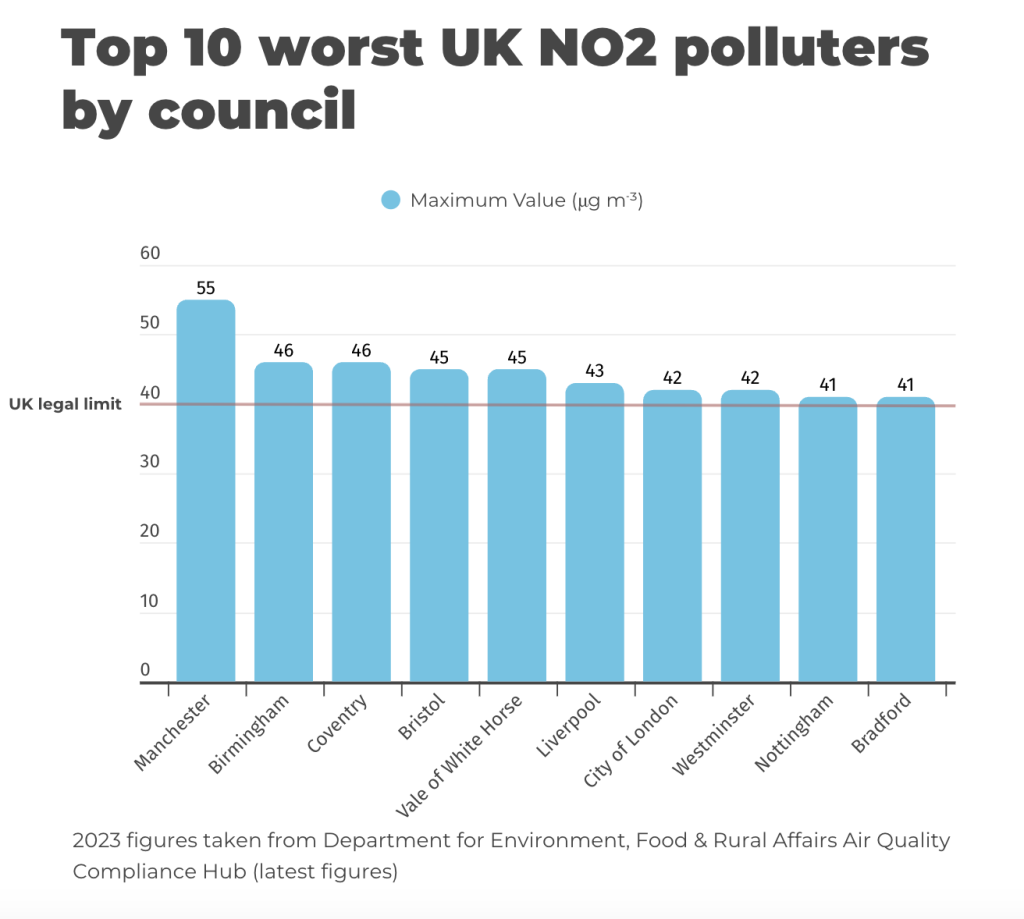
The most recent data taken from Defra’s Air Quality Compliance Hub showed the top 10 worst polluters in the UK all surpassed the UK’s legal limit, with Manchester in first place at 55µg/m3.
However in data undertaken by Greater Manchester by the Clean Air Plan in 2023 showed air pollution had fallen overall in Greater Manchester compared to 2022, and was significantly lower than pre-pandemic levels.
Greater Manchester scrapped plans for a Clean Air Zone, instead opting for alternative investment into low and zero-emission buses and taxis, developing traffic measure schemes and developing a cycling and walking fund to encourage sustainable travel.
The city-region has almost half a million diesel vehicles registered.
Disappointed by this clear breach of legal pollution limits and the city’s u-turn on the Clean Air Zone plans, Mums for Lungs have called on local politicians to take urgent action to protect the city’s “little lungs”.
The grassroots organisation, established in London in 2017 and Greater Manchester in 2023, have campaigned on local and national levels like calling on the government to ban the use of diesel by 2030, and working with schools to enforce temporary restrictions on school streets during drop-off and pick-up times to reduce air pollution.
Liz Godfrey, parent of two and coordinator for the Greater Manchester branch since its conception, expressed deep concern about the health crisis and the local authorities’ lack of ambition in tackling it.
Speaking to Mancunian Matters, Godfrey said: “It’s a hard one to campaign on because air pollution is invisible and we often say we wouldn’t drink dirty water, but yet we are allowing our kids to breathe in dirty air.
“We know from the huge amounts of evidence from other cities that Clean Air Zones really quickly and effectively bring down air pollution levels.
“We only need to look towards major cities like London or Bradford to see that in action, but the mayor has ruled that out as an option here.
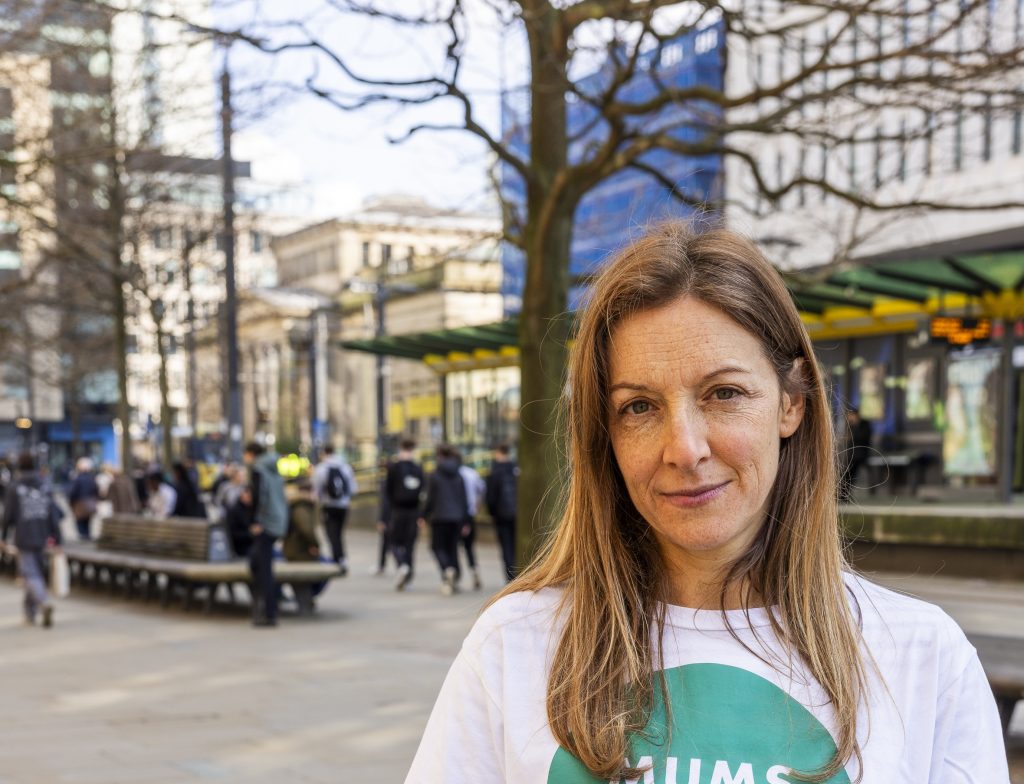
Godfrey praised the progression and focus on active travel through the Bee Network, Mayor Andy Burnham’s ongoing integration of Greater Manchester’s public transport system, but felt the area was still playing catch up.
“We don’t believe that the current clean air plan is going to go far enough to do that.”
“It’s been such a political hot potato in the past, often people talk about traffic and cars and that really gets polarized.
“But ultimately, the focus has to be on kids not being able to breathe and being taken into hospital because of that, which is a terrifying experience for anybody.
“We have to be changing the narrative across Greater Manchester to focus on health and we’ve got to be prioritising protecting our children’s lungs.”
When asked for comment, a Clean Air Greater Manchester spokesperson said: “Poor air quality is a national health emergency, and these figures demonstrate the serious impact it is having for people and families in our city-region.
“We are resolutely committed to cleaning up the air that we breathe and making the city-region a cleaner and healthier place to live in.
“The latest data shows that air pollution is overall falling here.
“This is being driven by our investment in the Bee Network and the transition to cleaner buses across the region, which will be further supported by the measures set out in our government-backed GM Clean Air Plan – which will improve air quality faster than a charging clean air zone.”
See how else Mums for Lungs are campaigning for clean air, here: https://www.mumsforlungs.org/
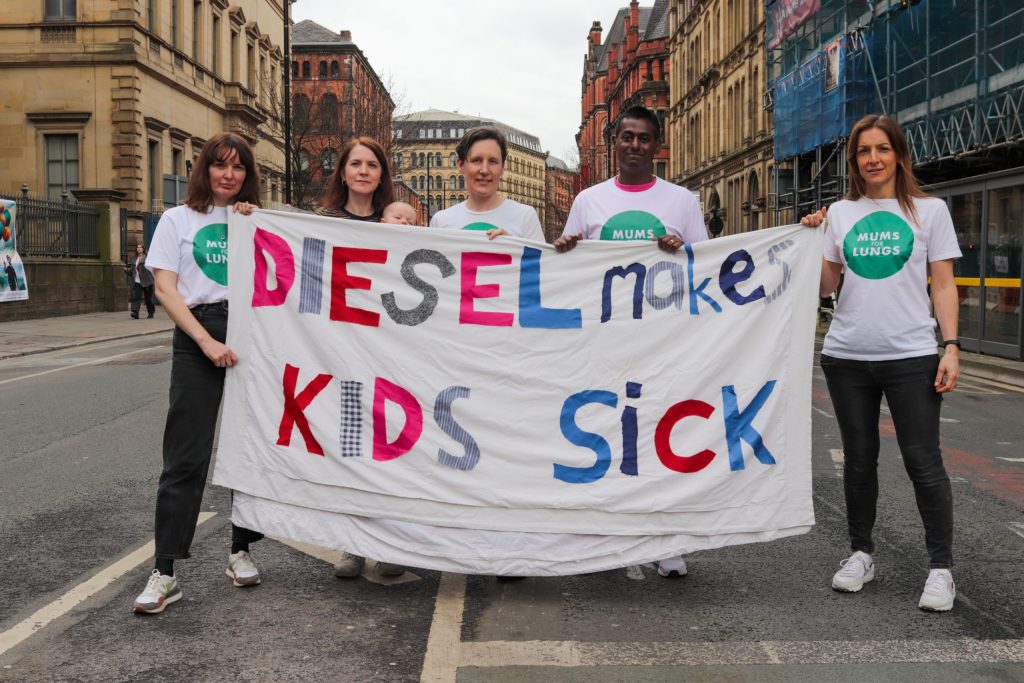
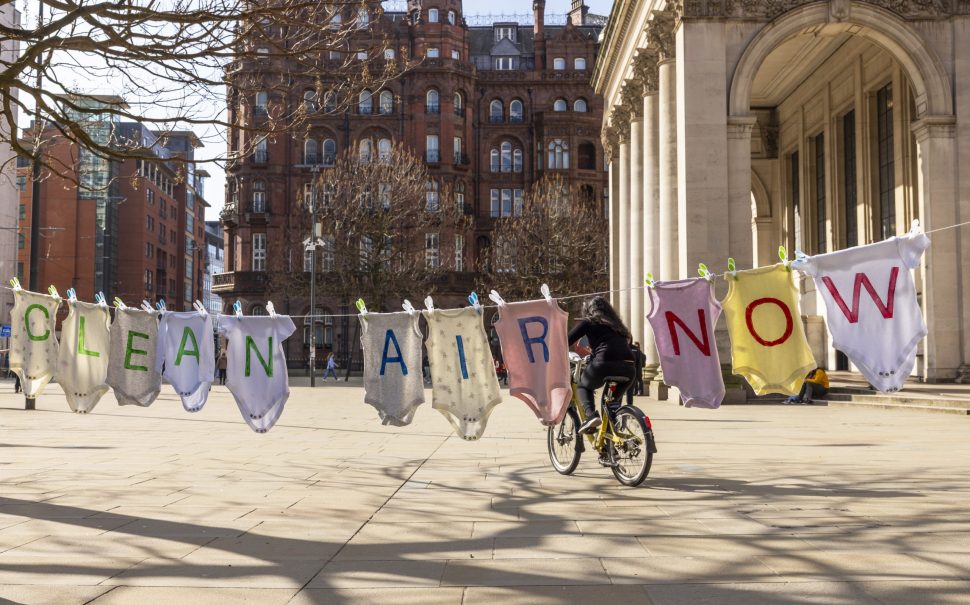




Join the discussion